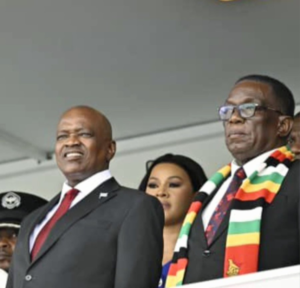SPEAKER OF PARLIAMENT DISREGARDS CCC LEADER’S LETTER, EXPULSES 15 MPS
In an unforeseen turn of events, the Speaker of Zimbabwe’s Parliament, Jacob Mudenda, has decided to expel 15 Members of Parliament (MPs) despite having been informed of their legitimate status by the Citizens Coalition for Change (CCC) leader, Nelson Chamisa.
The controversy began when Songezo Tshabangu wrote to Mudenda on 3 October, asserting his position as the CCC interim Secretary-General. In his letter, Tshabangu claimed authority to recall several MPs and councillors, alleging that they were no longer party members. This claim, if recognised, has significant implications. According to the constitution, an MP, upon leaving the party under whose banner they were elected, immediately loses their legislator status.
However, the crux of the issue is that Tshabangu, previously affiliated with opposition groups MDC-T and PDP, is not even recognised as a CCC member, let alone holding an authoritative position within the party. Nelson Chamisa, the main opposition CCC leader, swiftly addressed the matter. Within days, he penned a letter to Mudenda, stating unequivocally that Tshabangu was not only falsely asserting his position but was also not a recognised member of the CCC.
Chamisa’s letter to the Speaker read: “Songezo Tshabangu is not a member of CCC and as such cannot provide, avail, or adduce evidence of such membership as his name does not appear on any of CCC street or village registers of any district, in any province, as administered by the CCC Bureau of Organising.”
Furthermore, Chamisa clarified that the CCC does not have any such designation as Secretary-General or interim Secretary-General, as Tshabangu had alleged. The CCC leader firmly emphasised that no MPs elected under the Citizens Coalition for Change have been expelled or recalled from any elected position, be it in the National Assembly, the Senate, or any council.
The gravity of the situation is underscored by Chamisa’s next point in his letter. He highlights the seriousness of Tshabangu’s actions, stating, “Hon Speaker, the conduct of Mr Tshabangu is in fact a wanton violation of our laws and clear act of criminality. As such, criminal charges have been filed against him.”
Despite Chamisa’s clarifications and the subsequent legal actions taken against Tshabangu, the Speaker chose to proceed with the expulsion of the 15 MPs. This decision has raised eyebrows and stoked tensions in an already politically charged environment.
The overarching concern now is the implications of these expulsions. On one hand, there’s a question of the legitimacy and credibility of the Speaker’s decisions, especially in light of clear evidence provided by Chamisa. On the other, there’s the broader issue of political stability and the potential repercussions this could have on the functioning of the parliament and the overall political landscape of Zimbabwe.
In conclusion, while the immediate fallout of this incident remains to be seen, it’s evident that the political arena in Zimbabwe is set for some tumultuous times ahead. The actions of Tshabangu and the subsequent decisions of the Speaker have not only put the spotlight on individual characters but also shed light on the deeper systemic issues plaguing Zimbabwean politics.



